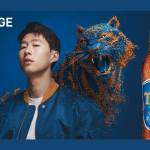Twitter suspended Chinese-backed accounts accused of sowing political discord.
Twitter is no longer allowing state-controlled media outlets to advertise on its platform.
Those outlets have 30 days to offboard from Twitter’s ad products, and in the meantime no new campaigns will be allowed. State media outlets can still use their Twitter accounts to organically reach audiences, just not use its advertising products.
This comes after Twitter suspended 936 government-run accounts within China. Twitter accused of “deliberately and specifically attempting to sow political discord in Hong Kong, including undermining the legitimacy and political positions of the protest movement on the ground.”
Hong Kong has been rocked over the last couple of months by citizens protesting over a controversial extradition bill and expressing their unhappiness with how China is governing the island.
The bill, if enacted, would allow local authorities to detain and extradite people who are wanted in territories that Hong Kong does not have extradition agreements with, including mainland China and Taiwan.
The protests have turned violent in nature. The country’s chief executive Carrie Lam suspended the extradition bill on June 15 and declared it “dead” on July 9, but did not say the bill would be fully withdrawn. Police and protesters engaging in street battles almost every week.
The protesters also managed to shut down the country’s busy airport this past week after staging sit-in protests.
In the latest protest, over 1.5m citizens protested over the weekend.
As Twitter is blocked in China, the suspended accounts had apparently been using a virtual private network (VPN) to access the platform.
In a blog post, Twitter said it wants to protect healthy discourse and open conversation.
“To that end, we believe that there is a difference between engaging in conversation with accounts you choose to follow and the content you see from advertisers in your Twitter experience which may be from accounts you’re not currently following,” Twitter wrote. “We have policies for both but we have higher standards for our advertisers.”
Twitter turned to a host of independent oversight groups to help define what constitutes a state-funded news outlet. Twitter consulted with groups such as Reporters Without Borders Press Freedom Index, Freedom House and the European Journalism Centre’s Media Landscapes Report.
Twitter said its policy applies to news media entities that are either financially or editorially controlled by the state.
“We will be making policy determinations on the basis of critical issues of media freedom and independence, such as control of editorial content, financial ownership, influence or interference over broadcasters, editors, and journalists, direct and indirect exertion of political pressure, and/or control over the production and distribution process,” Twitter wrote.
Outlets solely dedicated to entertainment, sports or travel content will not be banned from advertising on Twitter. A state-controlled outlet will be banned if news is mixed into its array of content.
Twitter has moved to ban state-backed news organizations from its products just as the company has introduced a six-second biddable ad unit to its global ad offering.
Separately, Facebook said a tip from Twitter led to the removal of a network of pages, groups and accounts originating in China and involved in “coordinated inauthentic behaviour” focusing on Hong Kong.
Facebook removed seven pages, three groups and five accounts originating in mainland China deemed to be part of an influence campaign focused on Hong Kong.
Around 15,500 accounts followed at least one of the campaign’s Facebook pages, according to the social network.
Facebook’s cybersecurity policy head Nathaniel Gleicher said people running the campaign used “deceptive tactics” including fake accounts to pose as news organisations, spread content and steer people to news sites.
“They frequently posted about local political news and issues including topics like the ongoing protests in Hong Kong,” Gleicher said.
“Although the people behind this activity attempted to conceal their identities, our investigation found links to individuals associated with the Chinese government.”
This includes the usage of 2011 footage of South Korean soldiers misrepresented as an impending Chinese “invasion” to doctored photographs exaggerating the size of rallies, Hong Kong citizens have been bombarded with conflicting claims from both sides of the political divide.
Videos and images of protests or violent incidents, often selectively edited or doctored to support a particular viewpoint, have circulated quickly on social media platforms, but also private chat groups such as Weibo or WhatsApp.
Concerned Hong Kong citizens have recently taken out newspaper ads urging an end to the protests.
source:http://www.thedrum.com
MARKETING Magazine is not responsible for the content of external sites.










